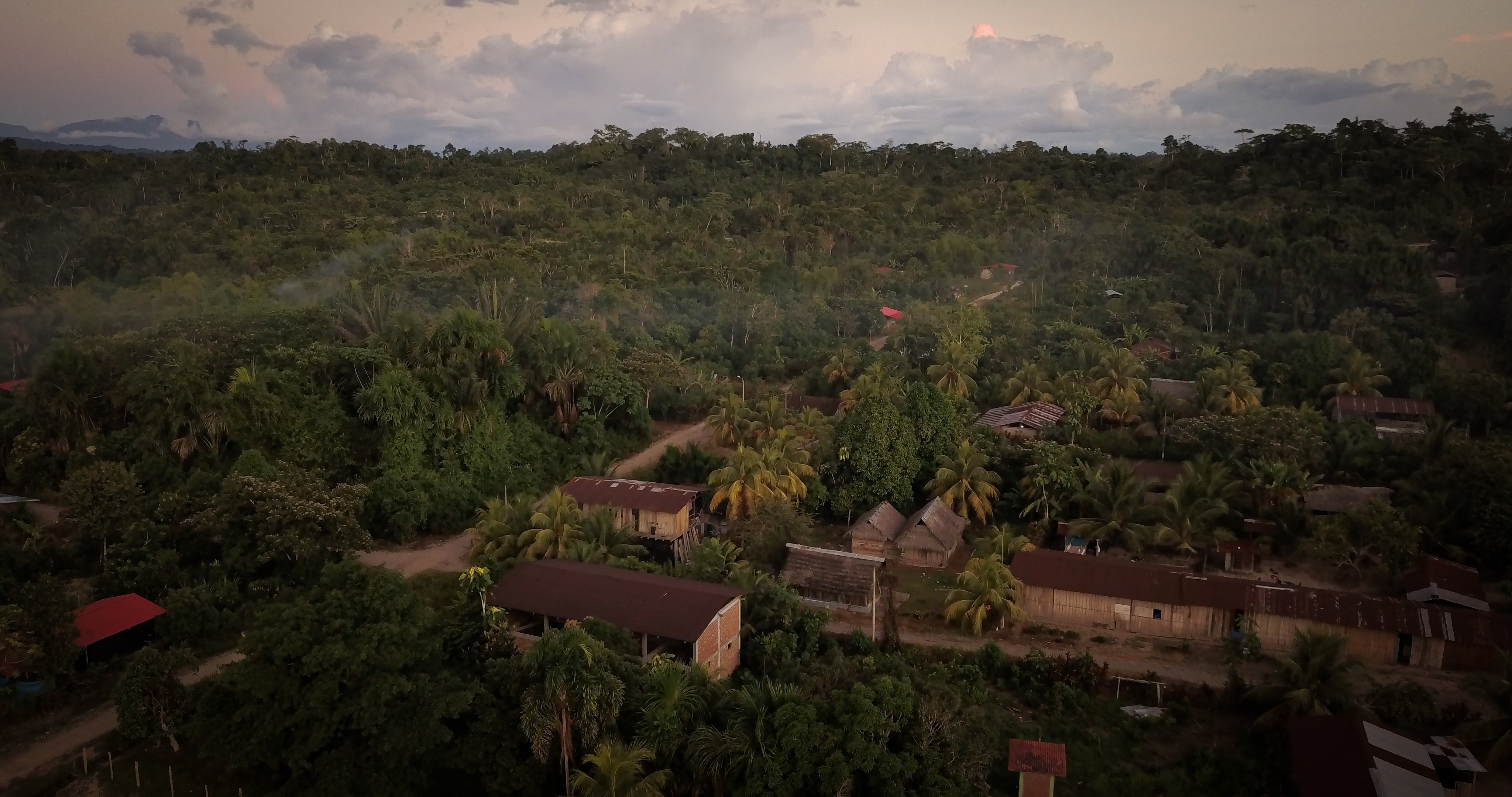New Analysis Highlights 1% of UK International Climate Funding Could Help Protect Rainforests

Giving 1% of the UK’s climate finance directly to people who live in rainforests is the most cost-effective way to protect forests and stop the climate crisis.
UNITED KINGDOM, June 12, 2025 /EINPresswire.com/ -- According to climate change charity, Cool Earth, this simple solution could save as much as 33 million tonnes of carbon from being released into the atmosphere each year.It is an idea that the charity put to Government officials and environmentalists this week during an event led by Tony Juniper MBE, Lord Deben and Baroness Natalie Bennett.
Matthew Owen, Director of Cool Earth said, “We’re asking for £115 million(1) just 1% of the UK’s climate finance funds to go straight to rainforest communities, the people who have been protecting tropical forests for thousands of years. With this small shift, we could keep 33 million tonnes of carbon locked in the ground, year on year. This method is cheap, it’s proven, and it works.”
According to the World Resource Institute, Indigenous Peoples and local communities hold or manage 54% of the world's remaining forests. As of 2020 there are 1.13 billion hectares of intact forests in the world. 610 million hectares of this is looked after by Indigenous peoples or local communities.(2)
Cool Earth has been demonstrating this model for 17 years with rainforest communities in Peru, Congo Basin and Papua New Guinea. Ensuring that 99% of the 2.1 million acres of rainforest it covers is intact. With the added bonus of providing Indigenous communities with economic security and autonomy.
Environmentalist and Chair of Cool Earth Tony Juniper CBE adds. “Empowering people who live in the forests can have a greater impact at a much lower cost than carbon offsetting or market based initiatives(3). What was clear in this morning's gathering was that this kind of cost effective approach would not only help prevent deforestation and contribute to meeting the climate crisis, but that spending 1% of climate money in this way would also address a wider-range of the Sustainable Development Goals and continue to cement UK leadership on the global stage.”
“We would not only ensure the survival of vital ecosystems at an extremely low cost but also strengthen the livelihoods and rights of those who are at the forefront of the climate crisis. I'd call it the bargain of the century.”
“With the window for climate action closing rapidly, the UK Government must embrace new and cost-effective approaches to climate finance. By doing so, we can achieve meaningful climate stabilisation and adaptation.”
Cool Earth urges MPs to back the 1% initiative and act swiftly to ensure that the UK’s climate finance commitments deliver real, lasting impact for both people and the planet.
To find out more about Cool Earth visit https://www.coolearth.org/
ENDS
References:
1. The last government's commitment to £11.6bn of climate finance - also known as UK’s International Climate Finance (ICF) - from 2021/22 to 2025/26 will continue to be honoured. This includes at least £3 billion on nature, from which £1.5 billion will be dedicated to protecting and restoring forests, and £239 million specifically allocated to tropical rainforests, announced at COP29 in Baku (UK Government, 2024).
2. World Research Insitiute data on how much tropical rainforest is managed by Indigenous peoples and local communities https://www.wri.org/insights/indigenous-and-local-community-land-rights-protect-biodiversity
3. 1% briefing, including calculations
Editors notes
○ Cool Earth partners with Indigenous Peoples and Local Communities who live in the rainforest and who have historically been the best at shaping and stewarding these ecosystems.
○ Protecting the three largest rainforests in the world is the most scalable and cost-effective solution against the climate crisis.
○ Founded in 2007, Cool Earth pioneered an unconditional cash transfer model to support Indigenous peoples and local communities against threats to their lands and rights.
○ Supported by a board of trustees led by Dr Tony Juniper CBE and including people such as Gillian Burke, as well as ambassadors such as Johan Rockström, Cool Earth is committed to developing rights-based approaches as essential solutions to the climate crisis.
For interviews please contact
Kaite Helps
+44 7766 934285
Kaite.helps|coolearth.org| |Kaite.helps|coolearth.org
Legal Disclaimer:
EIN Presswire provides this news content "as is" without warranty of any kind. We do not accept any responsibility or liability for the accuracy, content, images, videos, licenses, completeness, legality, or reliability of the information contained in this article. If you have any complaints or copyright issues related to this article, kindly contact the author above.
HIP Video Promo Presents: Rodney Bandz drops brand new music video for 'She Wanna Go Viral'
QuickBooks Online Training Adds Advanced Tools for Reporting and Project Tracking
NBA Legends Join Cal Dental USA and Palos Verdes Breakers for First-Ever 5-Week Youth Basketball Camp on the Hill
Więcej ważnych informacji
 Jedynka Newserii
Jedynka Newserii

 Jedynka Newserii
Jedynka Newserii

Prawo

Kolejne polskie miasta chcą być przyjazne dzieciom. Planują stworzyć najmłodszym dobre warunki do rozwoju
Cztery miasta w Polsce posiadają tytuł Miasta Przyjaznego Dzieciom nadany przez UNICEF Polska. Dziewięć kolejnych miast czeka na certyfikację, a w ostatnich miesiącach do programu zgłosiło się kilka następnych. Na całym świecie inicjatywa została przyjęta już w ponad 4 tys. samorządów, a w Hiszpanii objęła połowę dziecięcej populacji miast. Program UNICEF-u ma na celu zachęcenie włodarzy do traktowania najmłodszych obywateli w sposób podmiotowy, respektowania ich praw i zaproszenia ich do współdecydowania o przyszłości.
Przemysł
W ciągu roku w Polsce ubyło 500 przedsiębiorstw odzieżowo-tekstylnych. Problemem są spadki zamówień z Europy Zachodniej i wzrost kosztów

Wartość rynku odzieżowego w Polsce wynosi 66,9 mld zł, z czego 10 mld zł to wartość krajowej produkcji – wynika z danych PIOT. Od czasu pandemii branża mierzy się z szeregiem wyzwań, wśród których najpoważniejsze to wzrost kosztów pracy i produkcji, przerwane łańcuchy dostaw i spadek zamówień – zarówno w kraju, jak i za granicą, a także wzrost nieuczciwej konkurencji na rynku, czyli głównie importu z Chin. Skala wyzwań sprawia, że w ubiegłym roku z rynku zniknęło 500 firm. Producenci odzieży apelują do rządu o wsparcie.
Handel
D. Obajtek: Orlen powinien być o 30–40 proc. większą spółką. Byłoby to z korzyścią dla konsumentów

Orlen jest największym polskim przedsiębiorstwem. Jego przychody ze sprzedaży w 2024 roku wyniosły blisko 295 mln zł, a rok wcześniej – ponad 372 mln – wynika z raportu Rzeczpospolitej „Lista 500”. W ubiegłorocznym rankingu Fortune 500 uwzględniającym największe korporacje znalazł się na 216. miejscu na świecie i 44. w Europie. Według Daniela Obajtka, europosła PiS-u i byłego prezesa Orlenu, spółka powinna jeszcze urosnąć, tym samym gwarantując konsumentom szereg korzyści, a także przyspieszać inwestycje m.in. w obszarze petrochemii i energetyki zero- oraz niskoemisyjnej.
Partner serwisu
Szkolenia

Akademia Newserii
Akademia Newserii to projekt, w ramach którego najlepsi polscy dziennikarze biznesowi, giełdowi oraz lifestylowi, a także szkoleniowcy z wieloletnim doświadczeniem dzielą się swoją wiedzą nt. pracy z mediami.











.gif)

 |
| |
| |
|